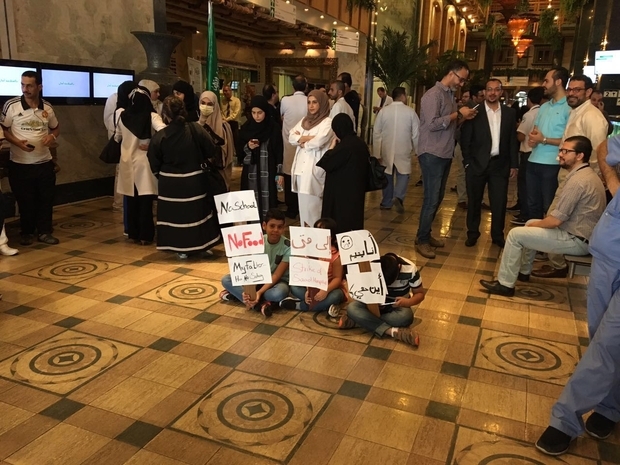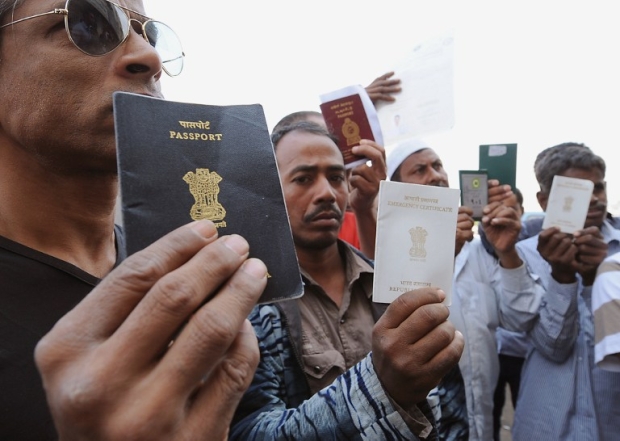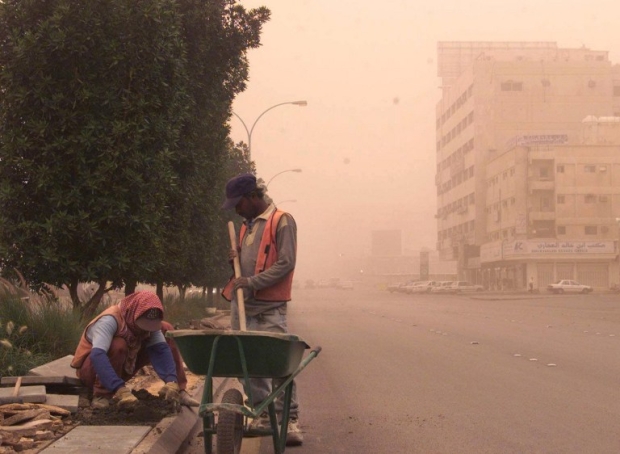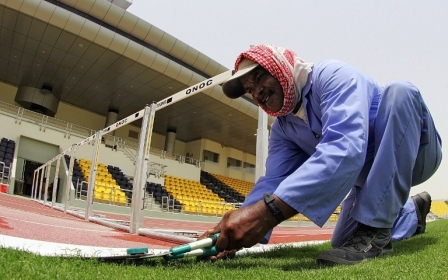Migrant workers bear the brunt of Saudi's archaic kafala system
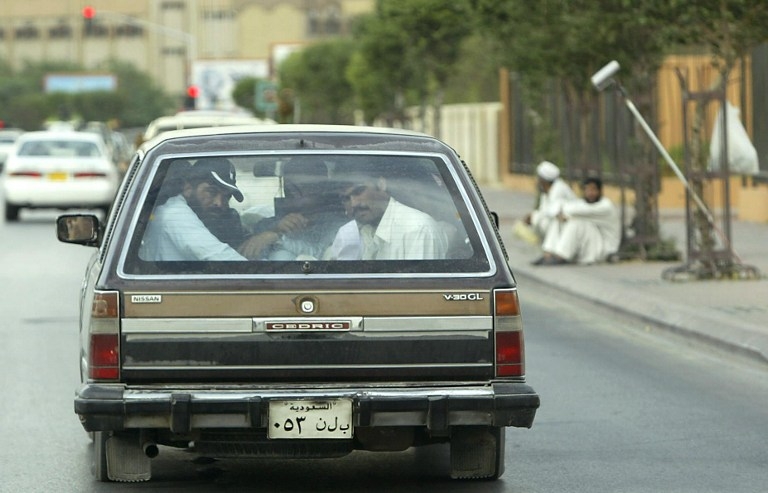
It has been a year that has exposed, as never before, the harsh consequences for migrant workers in Saudi Arabia when things go wrong.
Thousands of workers – by some estimates up to 150,000 – have been left stranded, some without food, electricity or medical care, as some of Saudi Arabia’s biggest construction companies have faced catastrophic financial difficulties. Some workers have been unpaid for up to 10 months.
Migrant workers are almost always the first to be affected, sitting at the very bottom of the payment chain
In one of the wealthiest countries in the world, stranded workers – many of whom build, clean and sustain Saudi Arabia – have had to turn to their embassies to provide food rations.
The crisis reached such epic proportions at one point that the Indian government felt compelled to dispatch to Riyadh the minister who had organised the evacuation of Indians from the conflicts in South Sudan and Yemen.
Frantic efforts have been made by the Saudi Arabian government, as well as workers’ own governments, to help workers get home. But many workers have refused to leave, despite living in dire conditions, in the hope of recovering the money they are owed.
These workers have borne the brunt of Saudi Arabia’s economic slowdown, driven by falling oil prices since 2014. Payment problems have reached an acute level in some sectors, to the point where Saudi Arabian and foreign nationals have taken rare joint strike action in a hospital in the Eastern Province.
Major construction firms, reeling from cuts in government spending, have faced a cash-flow crisis, which has choked much of the industry. The fate of Saudi Binladin group and Saudi Oger has attracted particular attention, but the effects have been spread across their subcontractors and suppliers. Migrant workers are almost always the first to be affected, sitting at the very bottom of the payment chain.
Trapped in a system
Companies fall into difficulties in many countries without becoming an international crisis. But in Saudi Arabia, the economic downturn collided with the country’s archaic kafala (“sponsorship”) system, which ties workers to their employers.
I have met workers who have been driven to consider suicide after months of sitting in limbo, unpaid and unable to support themselves or their families
Kafala has become associated with human rights abuses across the Gulf region, because it makes it so difficult for workers to extricate themselves from exploitative employment relationships.
Where employers have completely failed in their responsibilities, the kafala system leaves workers without any viable way out. They cannot get new jobs legally to sustain themselves and their families back home, because that would need the permission of their employers.
So they are left with an agonising choice of whether to stick it out to try to get some of their wages paid, or whether to abandon this hope and go home to try to rebuild their lives.
Company collapses can quickly develop into full-blown humanitarian crises. I have met workers in the Gulf who have been driven to consider suicide after months of sitting in limbo, unpaid and unable to support themselves or their families. Their companies could not issue them with the residency permits they needed, so they had effectively been turned into “undocumented” workers, at risk of arrest and unable to even leave their camps.
These are, in many cases, people who have been doing incredibly demanding, dangerous work, working excessive hours, on some of the region’s most prestigious projects.
Fundamental change required
Saudi Arabia, as well as other Gulf states – where workers have by no means been spared from the effects of oil price decline - and migrant workers’ countries of origin must transform the way they approach these issues, or the coming years will be a sad story of low-income workers paying the price for over-extended companies’ irresponsibility.
Rather than simply firefighting each time another business implodes, they have to take steps to proactively protect the millions of migrant workers that the region relies on every day.
Workers' countries of origin need to view this as an issue of strategic importance rather than just provide reactive emergency support. They need to develop more assertive approaches to their relations with Saudi Arabia and insist on proper enforcement of labour protections and reform of the damaging kafala system.
For its part, the Saudi Arabian government should assess the enormous damage which has been done to its reputation as a result of the current crisis and embark on fully fledged reforms to avoid more workers having to undergo similar ordeals in the future.
It could start by reviewing how easy it is for employers to hire workers from abroad, without needing to demonstrate that they have sufficient reserves to support those workers if contracts fall through or payments are delayed. Another crucial step would be the abolition of the exit permit, and reforms to allow workers to move to new employers more freely.
Ultimately, the Saudi authorities have to recognise that the kafala system, which gives such excessive powers to employers at the expense of workers, is not fit for purpose and needs fundamental reform.
- James Lynch is the deputy director of the Global Issues Programme at Amnesty International.
The views expressed in this article belong to the author and do not necessarily reflect the editorial policy of Middle East Eye.
Photo: A car loaded with foreign workers is driven to work in Riyadh in July 2004 (AFP)
This article is available in French on Middle East Eye French edition.
Middle East Eye propose une couverture et une analyse indépendantes et incomparables du Moyen-Orient, de l’Afrique du Nord et d’autres régions du monde. Pour en savoir plus sur la reprise de ce contenu et les frais qui s’appliquent, veuillez remplir ce formulaire [en anglais]. Pour en savoir plus sur MEE, cliquez ici [en anglais].



